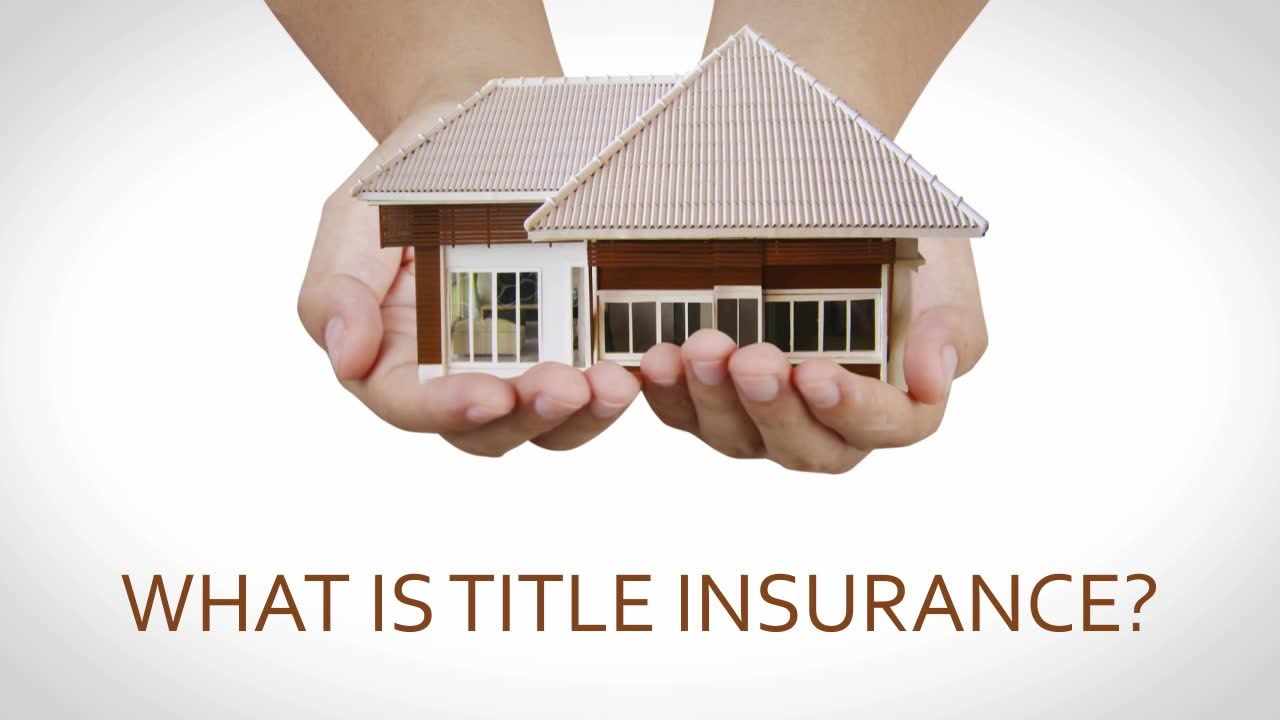
Insurance- QLD Rentals: Liability vs Property
Owning property comes with its fair share of responsibilities and potential risks. Whether you’re a property owner in Queensland or a landlord renting out a property, you may have heard about liability and property insurance. Understanding the nuances of these insurance types, the differences between public liability and property owners liability, and whether you need liability insurance for your rental property is crucial to safeguarding your assets and investments. In this article, we’ll delve deep into the realm of liability vs property insurance, property ownership in QLD, and address common questions surrounding this topic.
Liability vs Property Insurance: An Overview
Liability insurance and property insurance are two distinct forms of coverage that protect against different types of risks. Let’s explore each of them in detail:
1. Liability Insurance
Liability insurance provides coverage for legal and financial obligations arising from injuries, damages, or accidents that occur on your property or due to your actions. It safeguards you from potential lawsuits and helps cover medical expenses, legal fees, and settlements.
2. Property Insurance
Property insurance, on the other hand, offers protection for physical assets like buildings, structures, and personal belongings against perils like fire, theft, vandalism, or natural disasters. It ensures that you can recover financially if your property suffers damage.
Understanding Property Ownership in Queensland (QLD)
3. Property Ownership in QLD: A Guide
Before delving deeper into insurance, let’s understand property ownership in Queensland. Whether you’re a first-time buyer or an experienced investor, knowing the rules and regulations is vital:
Property Ownership Types in QLD: Freehold, Leasehold, Strata Title:
In Queensland, property ownership can take three main forms: freehold, leasehold, and strata title. Freehold ownership grants the owner absolute rights over the property and the land it stands on. Leasehold ownership, on the other hand, provides the right to occupy the property for a fixed period, typically through a lease agreement with the landowner. Strata title ownership is common in multi-unit complexes like apartments and townhouses, where individuals own their units and share ownership of common areas and facilities.
Legal Obligations and Responsibilities of Property Owners
As property owners in Queensland, individuals have specific legal obligations and responsibilities. These include maintaining the property in a safe and habitable condition, adhering to building and safety codes, and ensuring the property is compliant with local regulations. Property owners must also address any necessary repairs promptly and provide a safe living environment for tenants, if the property is rented out. Additionally, they are responsible for paying property taxes and other related fees.
Property Ownership Transfer Process and Costs
When transferring property ownership in Queensland, several steps and costs are involved. The process typically includes obtaining legal advice, conducting property searches, preparing legal documents, and lodging them with the appropriate authorities. Costs associated with property ownership transfer may include stamp duty, registration fees, legal fees, and any applicable taxes. It is essential for buyers and sellers to be aware of these costs and comply with the legal requirements to complete a smooth and legally valid property transfer.
Understanding these aspects of property ownership in Queensland is crucial for both current property owners and those looking to enter the real estate market. Being aware of the different ownership types, legal obligations, and transfer process empowers individuals to make informed decisions and ensure compliance with relevant laws and regulations.
4. The Importance of Title Insurance for QLD Property Owners
Title insurance is a crucial aspect of property ownership, offering protection against any defects in the property title, claims, or ownership disputes. Learn why it’s essential for QLD property owners:
Title insurance is a type of insurance that provides protection to property owners and lenders against potential financial losses or disputes related to the property’s title. The title refers to the legal ownership of the property, and any issues with the title can lead to significant financial liabilities. Title insurance helps mitigate these risks and provides peace of mind to property owners and lenders.
How It Works:
When a property is purchased, a title search is conducted to ensure that the title is clear and free of any encumbrances, liens, or other title defects. However, despite thorough title searches, certain hidden or unknown title issues may arise after the purchase. Title insurance steps in to protect the policyholder from such unforeseen problems.
Title insurance policies are typically purchased during the property’s closing process. There are two types of title insurance policies: owner’s title insurance and lender’s title insurance. The owner’s policy safeguards the property owner, while the lender’s policy protects the mortgage lender’s interests.
Coverage and Benefits:
Title insurance offers a range of coverage and benefits, including:
Defending Title: Title insurance covers the legal costs of defending the insured’s title against any claims or challenges.
Clearing Title Issues: If any title issues are discovered, the title insurance company works to resolve them, ensuring a clear title for the insured.
Fraud and Forgery: Title insurance protects against losses arising from fraud, forgery, or identity theft related to the property’s title.
Survey Errors: Coverage extends to losses resulting from errors in surveys or boundary discrepancies.
Pre-existing Title Issues: Title insurance provides coverage for pre-existing title defects or claims that were not discovered during the title search.
Common Title Issues and Coverage:
Some common title issues that title insurance addresses include:
Outstanding Liens: Unpaid taxes, mechanic’s liens, or other financial claims against the property’s title.
Forged Documents: Instances where documents related to the property’s title are forged or fraudulent.
Ownership Disputes: Disputes arising from unclear or conflicting ownership rights.
Missing Heirs: Claims from unknown or missing heirs that may arise after the property is sold.
Unrecorded Encumbrances: Unrecorded restrictions or covenants that affect the property’s title.
By purchasing title insurance, property owners and lenders are safeguarded against financial losses and legal challenges related to the property’s title. It provides protection and assurance that the title is valid and free from hidden defects, allowing property transactions to proceed smoothly and securely.
Difference Between Public Liability and Property Owners Liability
5. Understanding Public Liability Insurance
Public liability insurance is primarily for businesses and property owners who interact with the public. It covers legal liabilities arising from third-party injuries or property damage that occur on your premises or due to your activities.
Public Liability and Property Owners Liability are two distinct types of insurance coverage that serve different purposes. Here’s a breakdown of their differences:
Public Liability Coverage for Business Owners:
Public Liability Insurance provides coverage to businesses and individuals against third-party claims for bodily injury or property damage caused by their business operations or activities. It safeguards the insured against legal liabilities arising from accidents or incidents that occur on their premises or during the course of their business operations. For example, if a customer slips and falls in a retail store and sustains injuries, the store owner’s Public Liability Insurance would cover the medical expenses and any legal claims arising from the incident.
How Public Liability Insurance Differs from Property Insurance:
Public Liability Insurance primarily focuses on covering liabilities related to third-party injuries or property damage. It applies to situations where the insured is held legally responsible for causing harm or damage to someone else. On the other hand, Property Owners Liability, which is also known as Landlord Liability Insurance, pertains specifically to property owners who rent or lease their properties to tenants. It offers protection against claims for bodily injury or property damage that may occur on the rented premises. For example, if a tenant’s guest is injured due to a faulty staircase in a rented property, the Property Owners Liability Insurance would cover the legal costs and damages.
Who Needs Public Liability Insurance?
Public Liability Insurance is crucial for businesses, contractors, and professionals who interact with the public or have customers visiting their premises. It is especially important for businesses that involve physical activities or have potential risks of accidents, such as construction companies, restaurants, retail stores, and event organizers. Having Public Liability Insurance provides financial protection against costly lawsuits and claims, ensuring that businesses can continue to operate without facing significant financial losses.
In summary, while both Public Liability Insurance and Property Owners Liability Insurance involve liability coverage, they serve distinct purposes. Public Liability Insurance is geared towards businesses and individuals, protecting them from third-party injury or property damage claims resulting from their operations. On the other hand, Property Owners Liability Insurance is specific to property owners and covers claims related to their rented premises. Understanding these differences is crucial for individuals and businesses to ensure they have the right insurance coverage to protect themselves from potential liabilities and legal risks.
6. Unraveling Property Owners Liability Insurance
Property owners liability insurance is specifically designed for property owners. It provides protection against claims made by third parties who suffer injuries or damages on your property:
Difference between public liability and property owners liability:
Public Liability Insurance provides coverage for businesses and individuals against third-party claims for bodily injury or property damage caused by their business operations or activities. It protects the insured from legal liabilities arising from accidents that occur on their premises or during the course of their business activities. On the other hand, Property Owners Liability Insurance, also known as Landlord Liability Insurance, is specific to property owners who rent or lease their properties to tenants. It offers protection against claims for bodily injury or property damage that may occur on the rented premises.
Coverage and Scope of Property Owners Liability Insurance:
Property Owners Liability Insurance provides coverage for situations where a third-party, such as a tenant or their guest, sustains bodily injury or their property is damaged on the rented property. It covers legal costs, medical expenses, and damages resulting from such incidents. For example, if a tenant slips and falls in a rented property and suffers injuries, the Property Owners Liability Insurance would cover the associated medical expenses and any legal claims arising from the incident.
Advantages of Property Owners Liability Insurance:
Property Owners Liability Insurance offers several advantages to landlords and property owners. Firstly, it provides financial protection against costly lawsuits and claims that may arise due to accidents or incidents on the rented property. This protection is vital in today’s litigious society, where legal expenses can be significant. Secondly, it gives landlords peace of mind, knowing that they are protected against unforeseen events that could result in financial loss. Thirdly, having this insurance coverage can help landlords attract and retain tenants, as it demonstrates a commitment to providing a safe living environment.
Combining Public Liability and Property Owners Liability Insurance:
For property owners who also run a business or have business activities on the rented premises, combining Public Liability and Property Owners Liability Insurance can be a prudent choice. This comprehensive insurance approach ensures that both the business activities and the property itself are adequately protected from liability risks. By bundling these insurance policies, property owners can streamline their coverage and potentially save on insurance costs.
In summary, Public Liability Insurance and Property Owners Liability Insurance serve distinct purposes, with the former providing coverage for business-related liabilities and the latter protecting landlords from incidents on rented properties. Property Owners Liability Insurance offers valuable protection for landlords, ensuring they are safeguarded against potential liabilities and legal claims stemming from accidents on their rental properties. Combining these insurance coverages can provide comprehensive protection for property owners who also engage in business activities on their premises.
Do I Need Liability Insurance on Rental Property?
7. The Importance of Liability Insurance for Rental Properties
As a landlord in QLD, ensuring your rental property is adequately protected is essential. Let’s explore why liability insurance is a crucial aspect of rental property management:
Do I need liability insurance on rental property:
Yes, having liability insurance on rental property is highly advisable for landlords. Liability insurance provides crucial protection against potential legal claims and financial losses that may arise from accidents or incidents on the rental property. As a landlord, you could be held legally responsible for injuries or property damage suffered by tenants, their guests, or even passersby on the rental premises. Without liability insurance, you may be personally liable for medical expenses, legal fees, and damages awarded in such claims, which can be financially devastating.
Rental Property Risks and Potential Liability Scenarios:
Rental properties pose various risks that can lead to potential liability scenarios. For instance, slip and fall accidents, faulty electrical wiring, or property damage caused by a tenant’s negligence are common incidents that may result in legal claims against the landlord. Additionally, if a tenant’s guest sustains an injury on the property or claims their personal belongings were stolen, the landlord could face lawsuits seeking compensation. Liability insurance helps mitigate these risks and shields landlords from substantial financial burdens.
Landlord Insurance vs. Tenant Insurance: Clarifying the Difference:
Landlord insurance and tenant insurance serve distinct purposes. Landlord insurance, also known as Property Owners Insurance, protects landlords from property-related risks and liabilities. It covers the structure of the rental property, loss of rental income due to covered perils, and liability protection for the landlord. On the other hand, tenant insurance, also called Renters Insurance, covers a tenant’s personal belongings, liability for injuries or property damage they may cause to others, and additional living expenses if the rental becomes uninhabitable due to a covered event. Both types of insurance are essential, but it’s crucial to understand the scope of coverage they offer.
Securing Comprehensive Coverage for Rental Properties:
To ensure comprehensive protection for rental properties, landlords should consider a combination of landlord insurance and liability insurance. Landlord insurance provides coverage for property-related risks, while liability insurance specifically protects against potential legal claims. Having both coverages helps landlords safeguard their investment and personal finances. Additionally, requiring tenants to obtain renters insurance is a wise practice, as it not only protects tenants’ belongings but also reduces potential liability for the landlord.
In conclusion, liability insurance is a vital component of a comprehensive insurance strategy for rental property owners. It offers essential protection against potential legal claims and financial losses, ensuring landlords can operate with confidence and protect their investments. Understanding the difference between landlord insurance and tenant insurance is also crucial for landlords to communicate the importance of renters insurance to their tenants. By securing the right insurance coverages, landlords can effectively mitigate risks and safeguard their rental property investments.
8. Legal Requirements and Liability Insurance
Understanding the legal requirements concerning liability insurance for rental properties is crucial to avoid potential legal complications:
Do I need liability insurance on rental property:
Yes, as a landlord in Queensland, having liability insurance on rental property is highly recommended. Liability insurance provides essential protection against potential legal claims and financial losses that may arise from accidents or incidents on the rental property. As a landlord, you could be held legally responsible for injuries or property damage suffered by tenants, their guests, or even passersby on the rental premises. Without liability insurance, you may be personally liable for medical expenses, legal fees, and damages awarded in such claims, which can be financially devastating.
QLD Rental Property Insurance Regulations:
In Queensland, there are no specific laws that mandate landlords to carry liability insurance for their rental properties. However, despite not being legally required, obtaining liability insurance is still considered a prudent and responsible choice for landlords. It helps protect their financial interests and assets in case of unforeseen accidents or incidents on the rental property. Additionally, some lease agreements may include provisions requiring tenants to obtain their own renters insurance, which can also help mitigate potential liability for the landlord.
Liability Insurance and Tenancy Agreements:
While liability insurance is not mandatory under QLD rental property regulations, it is advisable to include clauses in the tenancy agreement that clarify the extent of the landlord’s liability and the importance of tenants obtaining their renters insurance. This can help establish clear expectations and responsibilities for both parties regarding liability and property protection.
Landlord’s Duty of Care and Liability Coverage:
As a landlord, you have a duty of care towards your tenants and visitors to maintain a safe and habitable rental property. While liability insurance is not a legal requirement, it serves as an essential safeguard against potential liability claims that may arise due to accidents or injuries on the property. Liability coverage helps protect landlords from financial hardships that could result from legal claims and judgments related to the rental property.
In conclusion, while QLD rental property regulations do not mandate liability insurance, obtaining this coverage is highly advisable for landlords. It provides crucial protection against potential legal claims and financial losses, ensuring landlords can operate with confidence and protect their investments. Including clauses in the tenancy agreement about liability and insurance can further clarify responsibilities for both parties. Overall, having liability insurance demonstrates a responsible approach to property management and safeguards landlords from potential liability risks.
Addressing Frequently Asked Questions (FAQs)
FAQ 1: What does property owners liability insurance cover?
Property owners liability insurance covers legal costs, medical expenses, and damages if a third party (e.g., a tenant or visitor) suffers injuries or property damage on your property.
FAQ 2: Is public liability insurance enough for my rental property?
While public liability insurance offers essential coverage, it may not fully protect your rental property from all potential risks. Combining it with property owners liability insurance can offer comprehensive protection.
FAQ 3: Can I transfer my property ownership in QLD without title insurance?
Title insurance is not a legal requirement in QLD, but it is highly recommended. Transferring property ownership without title insurance exposes you to various risks and potential disputes in the future.
FAQ 4: How can I reduce liability risks as a property owner?
To reduce liability risks, maintain your property in good condition, promptly address maintenance issues, conduct regular inspections, and ensure you have adequate liability insurance coverage.
FAQ 5: Is landlord insurance the same as property owners liability insurance?
No, landlord insurance and property owners liability insurance are different. Landlord insurance typically covers property damage and loss of rental income, while property owners liability insurance focuses on liability risks.
FAQ 6: Is liability insurance mandatory for QLD property owners?
While liability insurance is not legally required for property owners in QLD, having this coverage is highly advisable to protect yourself from potential financial losses and legal claims.
Understanding the distinctions between liability vs property insurance, property ownership in Queensland, and the significance of liability insurance for rental properties is vital for every property owner. By staying informed and adequately insured, you can safeguard your investments and ensure a secure future. Remember, each property is unique, so it’s crucial to consult with insurance experts to tailor coverage that suits your specific needs.
This is general advice only, for specific legal advice speak with your legal representative.





